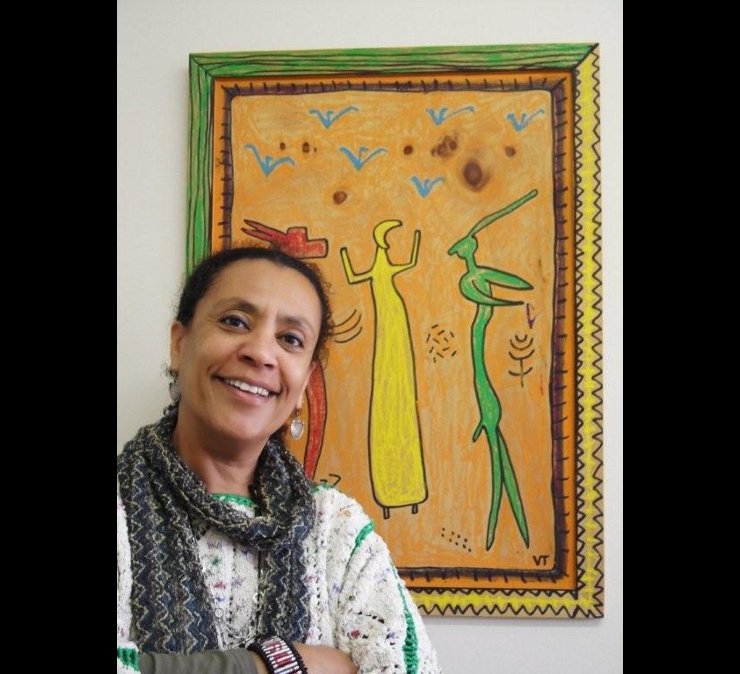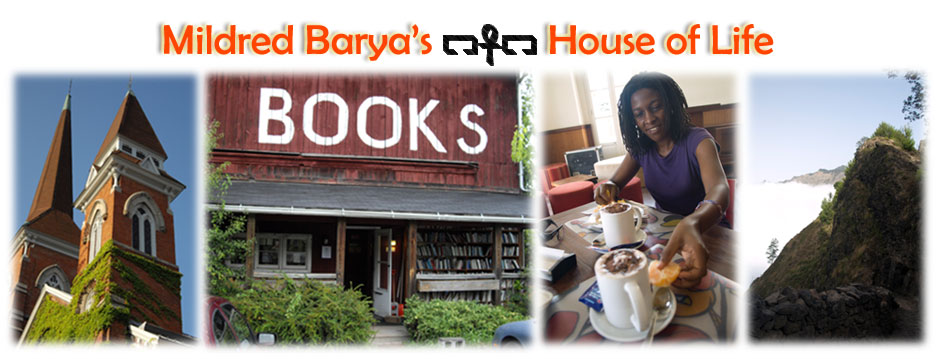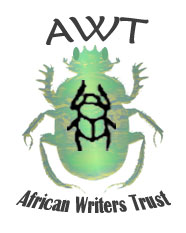 French and Côte d´Ivoire: Veronique Tadjo’s novella, As the Crow Flies, led me to her poetry book: Red Earth, first published in French as Laterite. The novella opens and ends like a long poem, is a love-betrayal and migration story, and at the heart of it are personal urban life affairs. But the search and formation of identities is made poignant in Red Earth through the journey motif.
French and Côte d´Ivoire: Veronique Tadjo’s novella, As the Crow Flies, led me to her poetry book: Red Earth, first published in French as Laterite. The novella opens and ends like a long poem, is a love-betrayal and migration story, and at the heart of it are personal urban life affairs. But the search and formation of identities is made poignant in Red Earth through the journey motif.
Red Earth is one long narrative poem that evokes the epic folk poetry and tradition of Okot p’Bitek and Christopher Okigbo. It’s both experimental and multifaceted, illustrated with art, written by the lover to the beloved. Tadjo’s style/form is rooted in the traditional song school while expressing contemporary political and social themes.
If you had come
Earlier
I would not have recognized
Your hibiscus hands
Your smile and your sensation
Corn Full Golden
And Balafon Rhythms
I would have ambled
Through the long years
And passing before me
Your shadow would have been unsettling.
The level of urgency rises with each new note as symbolism shifts from the woman addressing the absent lover to the land.
You are
As I imagined you
Waterlily-man
On the lake of my discovery
O conqueror striking down
That ancient lethargy
You are the spirit behind the mask
Praising the initiates
You are the red earth
Fertile with bitter songs.
The symbolism keeps expanding to reveal not just a country but a continent in the grip of colonialism.
Unveil for her
The thousand masks
At the bottom of your soul
Your absent words
And sad memories
Unknot your anguish
And look again at her
Then you’ll grasp
Together
The dark nights
And aborted dreams
And only then
Set forth.
The collective ‘We’ that comes in later also takes the song poem from the personal individual to the communal.
We will build for him
Open farms
And brick houses
We will open the books
And dress the wounds
We’ll give a name
To each corner beggar
And we’ll dress in cotton
The smallest among them
You have to know how to build
On the ruins of the cities
Know how to trace
The paths of liberty.
What’s very interesting is the way the form of the poem celebrates the substance as in the following parts that are incantatory, talking of the griot but being the song as well.
Repeat to me
What the griot says
Who sings Africa
From the time before time
He recounts
These patient kings
On the summits of silence
And the beauty of the elders
With faded smiles
My past returned
From the depths of my memory
Like a totem snake
Coiling my ankles
My solitude
And my shattered hopes
What might I bring
My children
If I have lost their soul?
The I too has a place as in the following parts:
Here is where
I want to rest
And find my beauty
Beside the mountain
And beneath this red earth
I want to recover
The buried secrets.
There’s a deep sense of loss, pain and longing as the lover tries to recover her magic in a playful tease.
You will see
I am a sorceress
If you listen to my words
Your teeth will grow
In double rows
And your throat
Will coo
Laughs cascading.
You will see
The rain will flow
In fine droplets
And refresh
The roam scent
The mangoes will run with
Rich juice
And the gourds will be full
Of millet and ripe corn.
You will see
I am a sorceress
If you listen to my words
The river will run in you.
Several lines that begin straight (as the crow flies) become fractured, and Tadjo imagines various dimensions through the prism of those severed or messy lines. So we have separation, fear, loneliness, betweenness and alienation, different cultures and transient beings in squalor, modern cities and ancestral homes; movement reflecting on rootedness, sense of self and identity through lamentations.
If you liked the song school style of Okot p’Bitek’s Song of Lawino and Song of Ocol, you might appreciate the voice in Red Earth.






No comments yet.